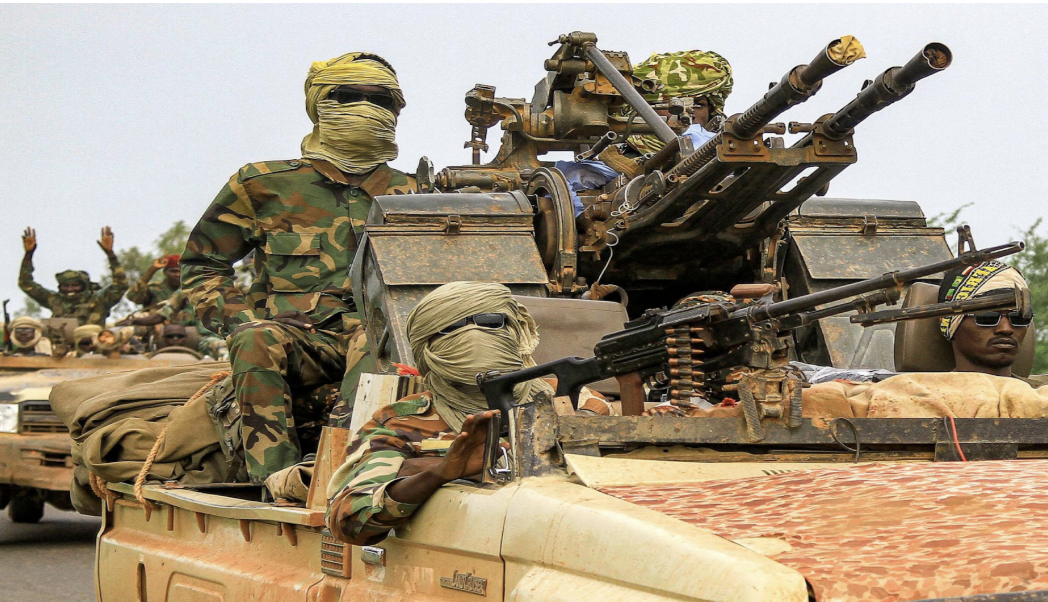Photo via ABC News
***
As a post-colonial continent, Africa has grappled with deep-rooted political, social, and economic challenges as a result of occupation that continue to shape its modern reality. Among the most recent crises is the devastating conflict in Sudan, which erupted into a civil war on April 15th, 2023. This ongoing war has not only claimed thousands of lives but has also displaced millions, destabilizing the region and drawing global concern. The Republic of Sudan, known by many as the mecca of Nubian civilization, is located in Northern Africa and is notable for its production of gum arabic, as well as a significant gold mining industry. Despite the clear abundance of resources, Sudan is ranked among the lowest countries in the United Nations Human Development Insights report, placing 176 out of 193 and is among the poorest countries in the world, coming in at number 153 in 2023 for GDP per capita.
The civil war began on April 15th, 2023, after a brutal struggle for power erupted between two rival factions of the country’s military government. The conflict involves the Sudanese Armed Forces (SAF), led by General Abdel Fattah al-Burhan, and the paramilitary Rapid Support Forces (RSF), commanded by Mohamed Hamdan Dagalo, who also leads the broader Janjaweed coalition. The RSF, born from the Janjaweed militia, formed in 2013 and was funded by Sudan’s former president Omar al-Bashir. The Bashir funded RSF was found to commit callous attacks on the people of Darfur, to the extent of being condemend a genocide by the ICC. The conflict in Darfur between 2003-2005 claimed over 300,000 civilian deaths and displaced 2.7 million. As a result, the installation of the RSF only worsened the conditions for the people as they suffered serious violations of international human rights and humanitarian law. This same military force has since been expanded by Gen Dagalo into an extremely powerful defense group involved in Yemen and Libya. These military forces control much of Sudan’s resources, such as its gold mines, and amidst the ongoing conflict, General Dagalo has been found to be profiting off smuggling gold to the United Arab Emirates (UAE).
The civil war is the collateral effect of the escalating tensions that have arisen after the ousting of Sudan’s president, Omar al-Bashir, who had been serving for more than two decades. Previously, there had been massive protests demanding an end to his dictatorial reign, in response to the stark increase and removal of subsidies on basic necessities which was the direct result of Bashir’s presidency. The Sudanese army dealt the final blow to Bashir’s presidency, carrying out a coup to oust him from power. After the coup succeeded, further protests ensued as civilians attempted to convert Sudan into a democratic nation. A joint military-civilian government was temporarily established before it was overthrown by another coup led by General Abdel Fattah al-Burhan and General Mohamed Hamdan Dagalo. It is believed that they are both reluctant to step down from their positions of power and therefore are currently leading the fight to determine who will prevail. The root of the conflict between the Generals extends to the breakdown of their pact after the military coup in 2021, which is exacerbated by both their controls on different sections of Sudanese commerce, giving both men immense wealth. As of April 2025 over 13 million Sudanese have been forced to flee their homes due to the conflict.
Many people believe, however, that the RSF and the allied militias have pursued a campaign to transform the ethnically diverse region of Darfur into one dominated by Arab rule. In fact, in March of 2024, UNICEF reported cases of armed men sexually assaulting children, some as young as one year old. That same month, Human Rights Watch (HRW) warned that the RSF and its allied militias might be committing genocide in Darfur, particularly targeting the Massalit and other non-Arab communities. The organization further noted that the scale of the killings suggested the RSF and its allies may have acted with “the intent to destroy, in whole or in part,” the Massalit people. Given that such acts could amount to genocide, HRW urged international organizations and governments to launch an investigation.
The SAF, on the other hand, is more of a traditional military institution. Its main goal thus far has been to maintain control of the state and preserve Sudan’s territorial integrity. Sudan’s military and political elites, however, have often marginalized ethnic minorities, particularly those in Darfur, South Kordofan, and the Blue Nile. The RSF, amid these events, seeks to impose a system that favors Arab elites and sidelines non-Arab communities. UN News writes, “The UN Secretary-General has called on the international community to urgently scale up funding and diplomatic action to ease the suffering of millions of Sudanese facing hunger and displacement as rival militaries continue battling each other for control.” It has been two years since the war began, yet the UN has not been able to effectively alleviate the situation. Despite having sent humanitarian aid, none of their efforts have been truly effective in settling the disputes between the rivaling militias. Namely, one of the attempts at a mediation effort from the U.S. and Saudi Arabia, titled the Jeddah Declaration, failed to fulfill their goals of a ceasefire, establishing humanitarian corridors, and civilian protection. Sudan’s fate is unknown, and what awaits the nation may not be promising, but it will ultimately depend on whether genuine international pressure and reconciliation can prevail over the cycle of violence.
***
This article was edited by Emma Zadrima and Eliana Tesfaye.
